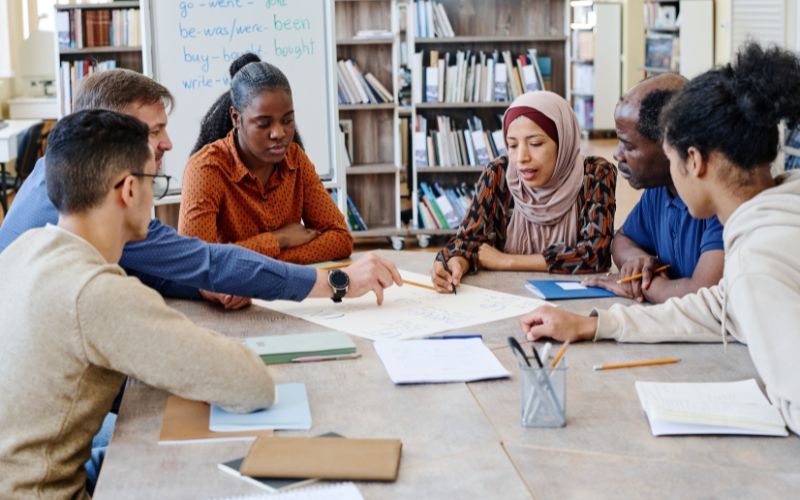Plastic waste is one of the most pressing environmental challenges facing communities around the world. As plastic pollution continues to accumulate in our oceans, landfills, and natural habitats, it is essential to educate communities about the impacts of plastic waste and how they can take action to reduce it. Education empowers individuals to make informed choices, fosters a sense of responsibility, and encourages collective efforts to address this critical issue. Here’s how communities can effectively educate themselves and others on plastic waste:
1. Raise Awareness Through Workshops and Seminars
Organizing workshops and seminars is an effective way to educate community members about plastic waste. These events can cover various topics, including the environmental impacts of plastic pollution, proper recycling practices, and alternatives to single-use plastics. Inviting guest speakers from environmental organizations, local governments, or sustainability experts can provide valuable insights and inspire community members to take action.
2. Develop Educational Materials
Creating informative materials, such as pamphlets, brochures, and infographics, can help disseminate knowledge about plastic waste. These materials can outline the consequences of plastic pollution, highlight statistics, and offer practical tips for reducing plastic use. Distributing these materials in schools, community centers, libraries, and local businesses can reach a broader audience.
3. Engage Schools and Educational Institutions
Integrating plastic waste education into school curricula is crucial for fostering environmental awareness among younger generations. Schools can organize activities such as recycling programs, waste audits, and environmental clubs focused on plastic reduction. Providing resources for teachers to incorporate lessons on plastic waste into their subjects can enhance students’ understanding of the issue and encourage them to become advocates for change.
4. Utilize Social Media and Online Platforms
Social media platforms and online communities are powerful tools for raising awareness about plastic waste. Local organizations can create campaigns to share information, tips, and success stories related to reducing plastic use. Engaging posts, videos, and challenges can encourage community members to participate actively. Online platforms can also facilitate discussions and allow individuals to share their experiences and ideas for reducing plastic waste.
5. Host Community Clean-Up Events
Organizing community clean-up events not only helps remove plastic waste from local areas but also serves as a practical education opportunity. Participants can learn about the types of plastic waste commonly found in their environment, the impacts of littering, and the importance of keeping their community clean. Such events foster a sense of community pride and encourage individuals to take responsibility for their surroundings.
6. Create Local Recycling Programs
Establishing effective recycling programs in the community can significantly reduce plastic waste. Educating residents about proper recycling practices and providing clear guidelines can improve recycling rates. Setting up convenient drop-off locations for recyclable materials and organizing regular collection events can make recycling more accessible. Collaborating with local waste management authorities can help ensure that recycling efforts are effective and well-supported.
7. Encourage Sustainable Practices
Communities can promote sustainable practices by highlighting the benefits of reducing plastic waste. Workshops on DIY projects, such as creating reusable bags or containers, can empower individuals to adopt sustainable habits. Encouraging the use of bulk purchasing, gardening, and local food sources can also reduce reliance on plastic packaging. By showcasing practical alternatives, communities can inspire positive change.
8. Foster Collaboration with Local Businesses
Engaging local businesses in the education effort can amplify the message about plastic waste reduction. Collaborating with shops, restaurants, and other enterprises to implement sustainable practices, such as offering discounts for reusable containers or providing information on eco-friendly products, can promote community-wide change. Businesses can also support educational initiatives by sponsoring events or providing resources.
9. Measure Impact and Share Success Stories
Tracking the impact of educational efforts and community initiatives is essential for demonstrating progress and encouraging continued participation. Sharing success stories, whether through newsletters, social media, or community meetings, can motivate others to get involved. Highlighting positive changes, such as increased recycling rates or reduced plastic waste in local areas, reinforces the importance of collective action.
Conclusion
Educating communities about plastic waste is vital for fostering a culture of sustainability and environmental stewardship. By raising awareness, engaging individuals of all ages, and promoting practical solutions, communities can work together to reduce plastic pollution and create a cleaner, healthier environment. Through education and collaboration, we can empower individuals to take meaningful action against plastic waste and contribute to a more sustainable future.


